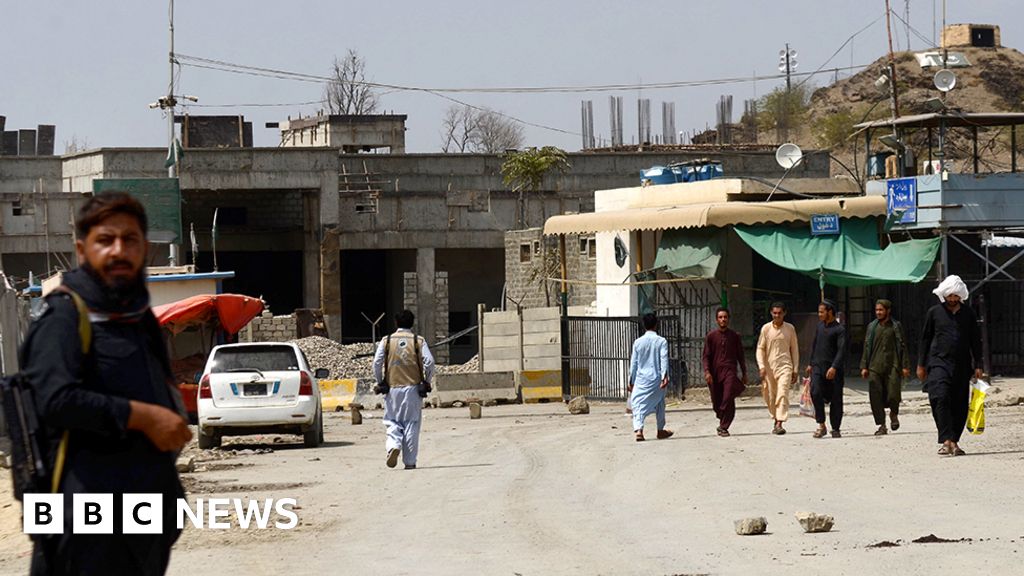- By Caroline Davies and Christy Cooney
- BBC News
Image source, Getty Images
Some have been waiting in Pakistan for more than a year, according to charities
The first plane bringing Afghan refugees from Pakistan to the UK has landed.
The flight left Pakistan with 132 people on board, official sources in the country told the BBC.
Thousands of people who fled the Taliban after working with or for the UK government in Afghanistan have been waiting in Pakistan for relocation.
Among them are former translators for the British Army and teachers for the British Council.
The Civil Aviation Authority said the UK government had chartered a total of 12 flights to bring Afghans to the UK between now and late December.
All the refugees are part of either the Afghan citizens resettlement scheme or Afghan Relocations and Assistance Policy.
They were asked to go to Pakistan for visa processing, but charities say some have been waiting there for more than a year, and that many of their visas have now expired.
Earlier this month, Pakistan said it planned to start deporting illegal migrants from 1 November.
After retaking control of Afghanistan in 2021, the Taliban declared an amnesty for people who worked with international forces, but many Afghans have described still living in fear of reprisals.
Some have also told the BBC that, by following the UK’s instructions to leave Afghanistan, they are worried that they have put themselves at even more risk.
Qasim – not his real name – was among those who worked with the UK authorities.
“Before we left Afghanistan, our lives were in 50% danger. Now they are in 100% danger,” he said.
According to a risk assessment document revealed in court, the British authorities in Pakistan now consider those awaiting UK visas in Pakistan to be “at risk of deportation”.
Government figures show that some some 3,250 men, women, and children in this group have been living in guest houses and hotels in Pakistani capital Islamabad.
While there, they do not have the legal right to work and their children are not able to attend school.
Many thought when they first travelled to Pakistan that they would be waiting there only a few weeks.
Documents released in court showed many had faced longer waits because Prime Minister Rishi Sunak had said that, in all but extreme cases, they could not be brought to the UK and accommodated in hotels.
Instead, longer-term accommodation had to be found before they could be relocated. One email said that this arrangement “should represent an overall net saving to the taxpayer”.
The BBC understands that the government has decided those on relocation programmes will no longer need to be matched to “suitable accommodation” before they arrive.

William Turner is a seasoned U.K. correspondent with a deep understanding of domestic affairs. With a passion for British politics and culture, he provides insightful analysis and comprehensive coverage of events within the United Kingdom.








